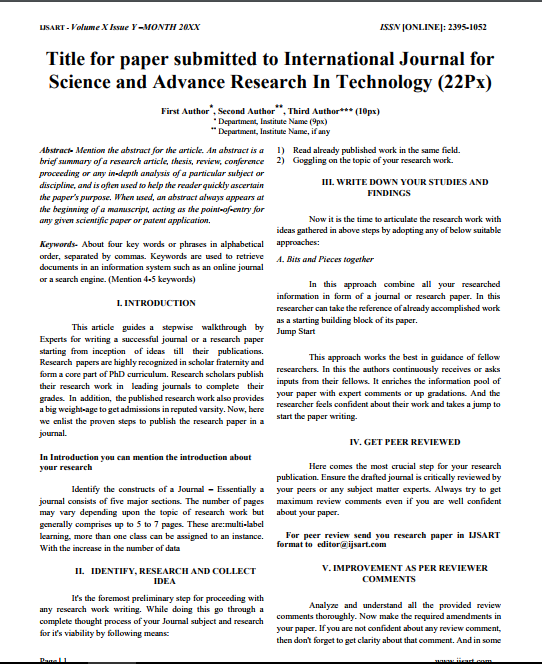Impact Factor
7.883
Call For Paper
Volume: 11 Issue 05 May 2025
LICENSE
An Analaysis Of Disease Prediction Algorithms
-
Author(s):
Dr Thara L | Abinaya B
-
Keywords:
ML, Artificial Neural Network(ANN), K-NN Algorithm, SVM Algorithm, Bayesian Networks, Random Forest Tree, Logistic Regression,disease Prediction Algorithm, Prediction Reliability.
-
Abstract:
The Aim Of Using Machine Learning Algorithms For Disease Prediction Is To Immensely Help To Solve Health-related Problems By Assisting Physicians In Predicting And Diagnosing Diseases In An Early Phase. The Disease Prediction Methodology Is Based On Predi
Other Details
-
Paper id:
IJSARTV9I1072424
-
Published in:
Volume: 9 Issue: 10 October 2023
-
Publication Date:
2023-10-02
Download Article


